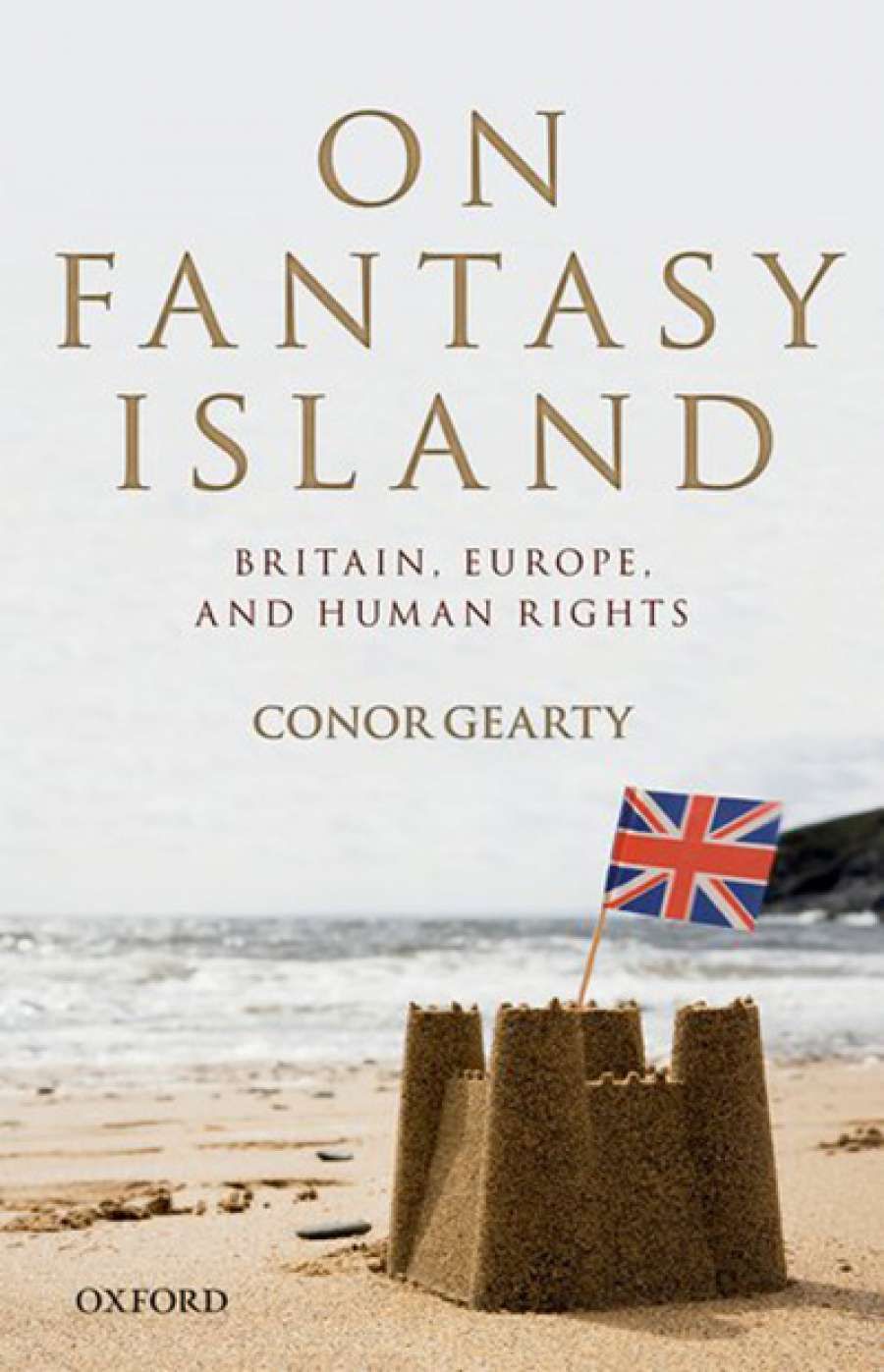
- Free Article: No
- Contents Category: Law
- Custom Article Title: John Eldridge reviews 'On Fantasy Island: Britain, Europe and Human Rights' by Conor Gearty
- Book 1 Title: On Fantasy Island
- Book 1 Subtitle: Britain, Europe and Human Rights
- Book 1 Biblio: Oxford University Press $38.95 hb, 256 pp, 9780198787631
On Fantasy Island is divided between an examination of ‘fantasies’, ‘facts’, and ‘future’, but it is at its best when putting paid to the misconceptions which have grown up around the Human Rights Act, and it is to this first task that Gearty devotes the bulk of his attention. Many of these myths stem from the apprehension that the Act has effected a judicial usurpation of Parliament’s power for the benefit of criminals and terrorists, and, accordingly, Gearty is at pains to give an account of the Act’s true scope, including the limited powers it has conferred on judges.
In their strongest form, human rights instruments empower courts to strike down legislation which is found to infringe protected rights. Instruments of this type – an exemplar of which is the Bill of Rights enforced by the Supreme Court of the United States – confer a great deal of power upon judges, inevitably at the expense of other branches of the state. As Gearty explains, however, the Human Rights Act belongs to a different category. The Act confers on British judges the responsibility to interpret legislation, so far as is possible, so that it is compatible with the articles of the European Convention on Human Rights, but it withholds from the courts any power to strike down Acts of Parliament. In fact, if a court is presented with legislation which cannot be made to yield a rights-compatible meaning, the only step available under the Human Rights Act is to make a ‘declaration of incompatibility’, the issuing of which has no effect whatsoever on the legislation’s validity. As Gearty highlights, the gap between the true state of affairs and the contentions levelled at the Act by its detractors could hardly be more stark.
Australia is, of course, no stranger to debates on the subject of human rights. Among the many initiatives of the frenetic early years of the first Rudd government was the National Human Rights Consultation, chaired by Frank Brennan and charged with investigating means by which human rights might better be protected in Australia. Though the Consultation’s final report recommended the adoption of a federal Human Rights Act, Australia today still lacks a national human rights instrument, and commentators remain divided on the need for one. For those who believe Australia ought to introduce such a reform at a national level, the developments recounted by Gearty may well prove disquieting. Yet there are good reasons to doubt that an antipodean human rights instrument would have the same fate as its British cousin. Perhaps the most heartening evidence is the fact that there are already human rights instruments operating in Victoria and the ACT, both of which share some features with the Human Rights Act, neither of which has been met with the popular backlash witnessed in Britain. Part of the difference may lie in the role which the Human Rights Act accords to the European Court of Human Rights in Strasbourg. The fact that British judges are required to ‘take into account’ the decisions of this European court when applying the Act may well, as Gearty suggests, sit uneasily alongside the now-prevailing mood of Euroscepticism.
If On Fantasy Island has a weakness, it lies in Gearty’s unduly optimistic prediction as to what would follow in the wake of the repeal of the Human Rights Act. For Gearty, the Act ‘may well have been the ladder that allowed the common law to ascend to its current ethical heights but it is not necessary to it remaining in the lofty position it now occupies’. Though it is doubtless true to say that courts would do all they could to fill the void left by the Act’s repeal, there are – as any Australian lawyer can attest – real limits to what judge-made law can achieve in the field of human rights protection.
Gearty’s uncommon gift for the distillation of complex legal ideas, allied with a deft and engaging style, make for an eminently readable account of an important point of public policy. This is a perceptive, humane book; it ought to be read by anyone with a concern for the practical protection of human rights.


Comments powered by CComment